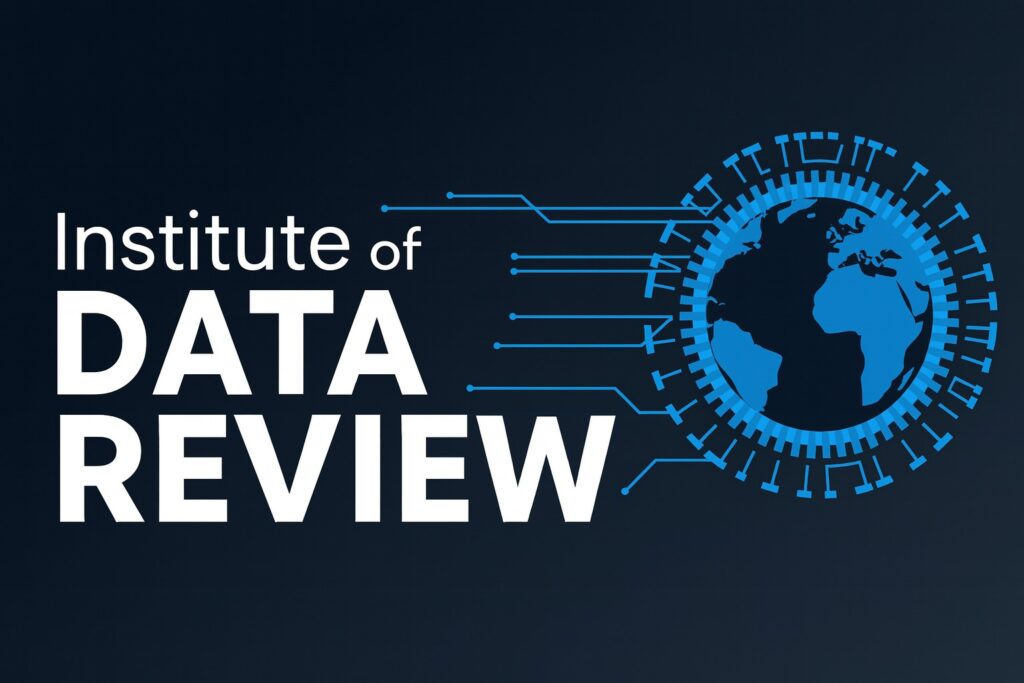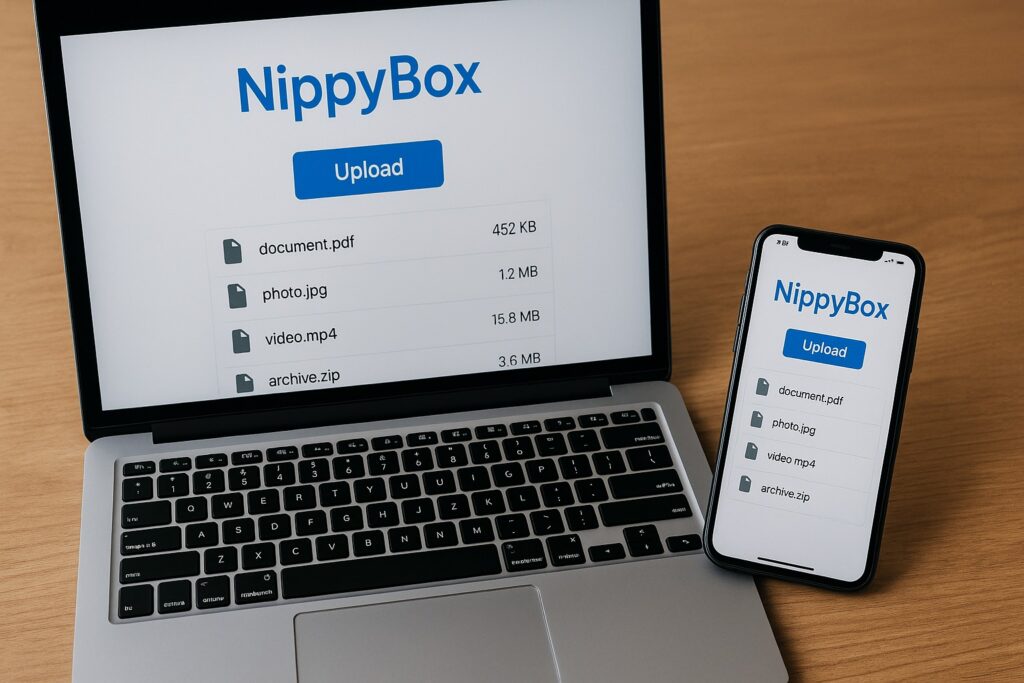When people search for “institute of data review”, they’re usually at a turning point in their career. Maybe you’re tired of your current job, maybe you’re looking to upskill in areas like data science, cybersecurity, or software engineering, or maybe you just want to understand whether investing in a bootcamp-style program is truly worth it.
As someone who has spent years in the tech industry—testing products, exploring bootcamps, and talking with professionals who’ve gone through them—I’ll walk you through what the Institute of Data really offers, how their courses compare to others in the market, and what students actually say about their experience. This isn’t just surface-level marketing talk. You’ll get expert insights, real feedback, and practical guidance that will help you make an informed decision.
Think of this article as a conversation with a technician who understands how tech careers work in the real world. I’ll break things down in simple, easy-to-follow language, while pointing out both the strengths and the challenges of the Institute of Data—so you walk away with clarity, not confusion.
What Is The Institute Of Data?
The Institute of Data is a professional training provider that focuses on turning beginners or mid-career professionals into job-ready tech specialists. Unlike traditional universities that stretch out over years, this institute takes a bootcamp approach—intensive, hands-on, and career-focused.
They run programs in areas that are in high demand across the tech market:
- Data Science & AI – covering Python, statistics, visualization, and machine learning models.
- Cybersecurity – ethical hacking, penetration testing, and protecting systems against real-world threats.
- Software Engineering – full-stack development, from front-end frameworks like React to back-end logic and databases.
- Digital Marketing & Analytics (offered in certain regions).
What makes them stand out is their delivery style. Classes are usually live and interactive, not just pre-recorded videos. Students work on projects, solve real case studies, and interact with instructors who are active in the industry. In other words, it’s structured less like a lecture and more like a workshop environment, which suits learners who want practical skills they can apply immediately.
Another point worth noting: you don’t necessarily need to be a coding expert to start. Many students come from non-tech backgrounds—finance, retail, healthcare, and even education. The entry requirement is usually a bachelor’s degree and English proficiency, but the institute also provides pre-work modules to get everyone up to speed before diving into the main curriculum.
From a technician’s perspective, I’d say the Institute of Data is positioned as a career-transition hub rather than a traditional school. It’s not about theory for theory’s sake; it’s about getting you into a new role as quickly and effectively as possible.
What Programs Do They Offer? A Quick Tour
The Institute of Data has built its reputation around career-focused programs that cover some of the most in-demand areas in the tech world. Each course is designed to be immersive, practical, and aligned with what employers are actually looking for. Let’s walk through their main offerings:
Data Science & AI
This track is built for people who want to step into roles like Data Analyst, Machine Learning Engineer, or AI Specialist. You’ll cover:
- Python programming (the backbone of data work).
- Statistics & visualization to make sense of raw data.
- Machine learning models to predict outcomes.
- Neural networks & AI fundamentals to understand how modern systems like chatbots and image recognition work.
It’s not just about theory—you’ll be building projects that simulate real industry scenarios, which helps build a strong portfolio.
Cybersecurity
With cyber threats growing every day, this program focuses on protecting businesses and governments from attacks. The curriculum includes:
- Ethical hacking & penetration testing (learning how attackers think, so you can defend against them).
- Cryptography and secure communications.
- Network and cloud security
- Simulated incident response drills, so students practice reacting to real breaches.
From a technician’s point of view, this is one of the most practical tracks because it’s hands-on and immediately applicable in today’s security-driven world.
Software Engineering
If you want to become a full-stack developer, this track covers the end-to-end process of building applications:
- Front-end development with JavaScript and frameworks like React.
- Back-end systems for logic, APIs, and databases.
- Version control (GitHub) for collaboration.
- Agile workflows to prepare you for real-world team environments.
This program mimics what a junior developer would face on the job, which is critical for landing your first role.
Digital Marketing & Analytics
Some regional branches of the Institute of Data also offer this program. It focuses on:
- Running campaigns across platforms like Google and social media.
- Understanding SEO, paid ads, and analytics tools.
- Tracking performance data to make smarter business decisions.
This option is less technical than coding or cybersecurity but still valuable for people interested in blending tech with business strategy.
Full-Time Vs. Part-Time Options
- Full-time: Around 12 weeks, designed for people who can commit fully to study and want to transition quickly.
- Part-time: Around 24 weeks, aimed at working professionals who prefer evenings or weekends to balance study with their job.
Both formats are structured around live classes and group work, so the pace is intensive—but flexible depending on your schedule.
Learning Experience: Curriculum, Format, Instructors
One thing that really defines the Institute of Data is how it delivers its programs. Unlike pre-recorded online courses that leave students learning in isolation, this institute uses a live, cohort-based model. That means you’re learning alongside a small group of peers, guided by instructors who are active in the tech industry.
Curriculum Design
The curriculum is project-driven. Every module is tied to a practical outcome, whether it’s building a machine learning model, developing a full-stack web app, or running a mock cybersecurity drill. This is crucial, because employers want to see proof of skills—not just a certificate. By the time you graduate, you’ll have a portfolio of real-world projects you can showcase in interviews.
Classroom Format
Classes are conducted live online (and in some cases hybrid with partner universities). Instead of passively watching, students participate through:
- Breakout rooms for teamwork.
- Interactive whiteboards to solve problems together.
- Group discussions where instructors push you to think like a professional, not just a learner.
This format can feel intense, especially for beginners, but it mirrors the collaborative environment of real workplaces.
Instructors & Mentorship
The instructors aren’t just academics—they’re usually industry professionals with current experience in fields like software engineering, data science, or cybersecurity. Students often highlight their approachability and real-world insights as a major strength.
Many courses also include mentorship sessions. These give you one-on-one time with experts who can provide tailored feedback, answer technical questions, and guide you on how to translate class projects into job-ready skills.
From my own experience in the tech world, this combination—structured curriculum, live collaboration, and industry mentorship—is what separates high-quality bootcamps from average ones. It’s designed to prepare you not only to understand the concepts but also to apply them confidently in professional settings.
Career Support & Outcomes
For many students, the big question isn’t just “Can I learn these skills?” but “Will this help me land a job?”. The Institute of Data has built its programs with career transitions in mind, so career support is woven into the experience from day one.
Dedicated Career Services
Students get access to a career coaching team that focuses on:
- Resume and LinkedIn optimization – tailoring profiles to stand out for data, cybersecurity, or software roles.
- Mock interviews – practicing both technical and behavioral questions.
- Networking sessions – introductions to hiring partners and alumni.
- Job search strategies – from targeting the right companies to positioning yourself effectively in the market.
This isn’t a “learn now, figure out the job later” model; it’s structured so you’re preparing for your job hunt while you’re still learning.
Hiring Partners & Job Pathways
The institute collaborates with companies across finance, healthcare, consulting, and IT. Graduates often move into roles such as:
- Data Analyst or Data Scientist
- Cybersecurity Analyst or Consultant
- Full-Stack Developer or Software Engineer
While there isn’t a guaranteed placement, reviews show a high success rate among graduates who commit fully to the program and use the career resources provided.
Realistic Outcomes
Now, speaking from a technician’s perspective, it’s important to keep expectations balanced. Bootcamps like this can open doors, but they don’t replace years of experience overnight. Success usually depends on:
- How much effort you put into projects and networking.
- Your willingness to keep learning after the bootcamp.
- Leveraging the career services consistently.
Students who do this often land jobs within 3–6 months of graduating, while others may take longer depending on their background and the job market.
In short, the Institute of Data isn’t just selling education—it’s selling a pathway into a new career. And for motivated learners, the career support can be the bridge that makes that transition possible.
Program Costs & Financing
A big part of any institute of data review is understanding the financial side. These programs are an investment, and like any investment, you need to weigh the cost against the potential return.
Tuition Fees
On average, tuition at the Institute of Data ranges between $10,000 and $15,000+ USD (or equivalent in AUD/NZD) depending on the program and whether you choose full-time or part-time. Full-time tends to be on the higher end since the schedule is more intensive and accelerated.
Payment Options
The institute offers several ways to make the cost more manageable:
- Upfront payment – usually comes with a small discount.
- Installment plans – spreading tuition across monthly payments.
- Deferred payment – in some regions, you may pay after you’ve started working in tech.
- Employer sponsorships – some students get partial or full funding from their current employer as part of professional development.
- Government subsidies or grants – available in certain countries like Australia or New Zealand, where universities partner with the Institute of Data.
Is It Worth The Investment?
From a technician’s standpoint, I’d put it like this: if you treat the program as a serious full-time commitment—building projects, networking, using career support—the value can outweigh the cost. Landing a role in data, cybersecurity, or software engineering often comes with starting salaries that quickly make up for tuition.
However, if you sign up without dedicating enough time or without clear career goals, the price tag can feel heavy. Bootcamps give you the tools, but your outcome depends on how actively you use them.
In short, it’s not a cheap program—but for career switchers aiming to enter high-paying tech fields, it can be a smart investment when approached with the right mindset.
Accreditation, Partnerships & Credibility
When people look up an institute of data review, one of the first concerns is whether the program is credible. After all, with so many bootcamps popping up, it’s natural to ask: Is this institute recognized? Will my certificate hold value in the job market?
University Partnerships
The Institute of Data has built credibility by partnering with established universities. Some of their well-known collaborations include:
- University of Technology Sydney (UTS) – where programs are co-branded and delivered under UTS Bootcamps.
- Swinburne University of Technology in Australia.
- University of Waikato and Auckland University of Technology (AUT) in New Zealand.
These partnerships mean students get access to university-standard facilities and teaching structures, even though the bootcamp itself is industry-driven.
Accreditation Status
It’s important to note that while these programs are recognized by employers and supported by universities, they don’t always provide traditional academic credits like a bachelor’s or master’s degree. Instead, graduates receive a professional certificate of completion.
From a technician’s perspective, this isn’t necessarily a drawback. In tech hiring, what often matters more than academic credits is your portfolio, skills, and ability to solve problems—all of which the Institute of Data emphasizes.
Industry Recognition
The institute has a strong presence on review platforms such as:
- Course Report – with average ratings above 4.7/5 from graduates.
- com.au – highlighting student satisfaction in Australia.
- Trustpilot and Reddit – where real students share unfiltered experiences.
The consistency of reviews across multiple platforms reinforces its legitimacy. Students commonly praise the hands-on learning and supportive instructors, though some do point out the intensive pace and high tuition as challenges.
In short, while it’s not a traditional degree-granting university, the Institute of Data has built solid credibility through university partnerships, strong student outcomes, and recognition across multiple review sites. For employers, the key takeaway is that graduates can do the work, and that’s often more valuable than a piece of paper.
Student Feedback: Real Voices & Reddit Insights
No institute of data review is complete without hearing directly from the people who’ve actually gone through the program. Reviews across platforms like Course Report, ProductReview.com.au, and even Reddit threads give us a clearer picture of what students truly experience.
Positive Experiences
- Supportive Instructors – Many students highlight that trainers are approachable and bring real-world industry knowledge into the classroom. One graduate noted that “mentors didn’t just teach the syllabus—they shared career tips I’d never find in a textbook.”
- Hands-On Projects – The project-based approach gets a lot of praise. Learners felt they graduated with practical portfolios they could showcase to employers.
- Career Coaching – Alumni frequently point out that resume workshops, LinkedIn help, and mock interviews were crucial for landing their first tech jobs.
Challenges Mentioned
- Intensive Pace – Bootcamps are fast, and some students admitted it was hard to balance work, study, and personal life—especially in part-time mode.
- Cost Factor – A recurring comment is that while the program is valuable, the tuition is expensive. Some felt the return on investment only made sense if they were fully committed to changing careers.
- Variable Outcomes – While many graduates secured jobs within a few months, others reported taking longer, depending on their networking and effort outside of class.
Reddit Insights
On Reddit threads like r/cscareerquestionsOCE, users give candid takes. Some mention the Institute of Data as a solid option for career switchers who want structure and accountability. Others compare it to self-learning via free resources, arguing the bootcamp is best for those who need discipline, mentorship, and career support.
From a technician’s perspective, these mixed voices are expected. No bootcamp is perfect, but the consistent positives—practical learning, strong support, and career services—carry more weight than the occasional negative, which usually comes from mismatched expectations or lack of time commitment.
How To Evaluate “Institute Of Data Review” Feedback
When you’re reading through reviews of the Institute of Data—whether on Course Report, ProductReview, Reddit, or independent blogs—it’s important to approach them with the right mindset. Not every review will match your situation, and some voices can be louder than others. Here’s how to make sense of them like an expert:
Look For Patterns, Not One-Off Comments
One glowing review or one negative rant doesn’t tell the whole story. Instead, focus on recurring themes:
- Multiple students praising the career coaching suggests it’s a strong point.
- Repeated mentions of the program’s intensity mean you should expect long hours and fast-paced learning.
Patterns give you a more reliable picture than isolated opinions.
Compare With Other Bootcamps
A smart way to evaluate is by stacking the Institute of Data against alternatives like General Assembly, Springboard, or Le Wagon. Check:
- Cost vs. outcomes.
- Learning format (live vs. recorded).
- Job support offered.
This helps you see if the Institute of Data is delivering value at its price point.
Match With Your Learning Style
Every student is different. Ask yourself:
- Do you thrive in a structured, live-class environment? Then you’ll likely do well here.
- Prefer self-paced learning? You might find the bootcamp too rigid or intense.
A lot of negative reviews come from students who discovered too late that the format didn’t suit their lifestyle.
Balance Hype With Realism
Bootcamps can boost your skills quickly, but they don’t replace years of industry experience overnight. If a review promises “instant success,” be skeptical. The more grounded reviews that talk about hard work + career support leading to opportunities are usually closer to reality.
From a technician’s lens, I’d say treat reviews as data points. Just like in tech, when troubleshooting an issue, you never rely on a single log—you look at the trend. The same goes here: if multiple reviews point to the same strengths or weaknesses, that’s where you should focus your attention.
Conclusion
When looking at the overall institute of data review, one thing is clear: this isn’t a casual course—it’s an immersive, industry-aligned bootcamp that demands real commitment. The programs are designed to mirror what the tech market expects, combining hands-on projects, live mentorship, and structured career support. Students who embrace the intensity often graduate with not just new skills, but also a portfolio and a job-hunting strategy that puts them ahead of other entry-level candidates.
At the same time, reviews remind us that this journey requires serious investment—both financially and personally. Success doesn’t happen automatically; it depends on how much effort you put in and how well you use the resources provided. For motivated learners looking to fast-track their careers into fields like data science, cybersecurity, or software engineering, the Institute of Data can be a strong choice. If you walk in with realistic expectations, determination, and a willingness to learn, the institute could be the launchpad that takes your career to the next level.
Thank you for visiting Smart Fix Guide! For more helpful tips and quick solutions, check out the other guides on this website.
Disclaimer: This article is for informational purposes only and reflects general research and expert opinions on the Institute of Data. We do not represent the institute, nor do we guarantee outcomes. Readers should verify details directly with the official Institute of Data before making any enrollment or financial decisions.


